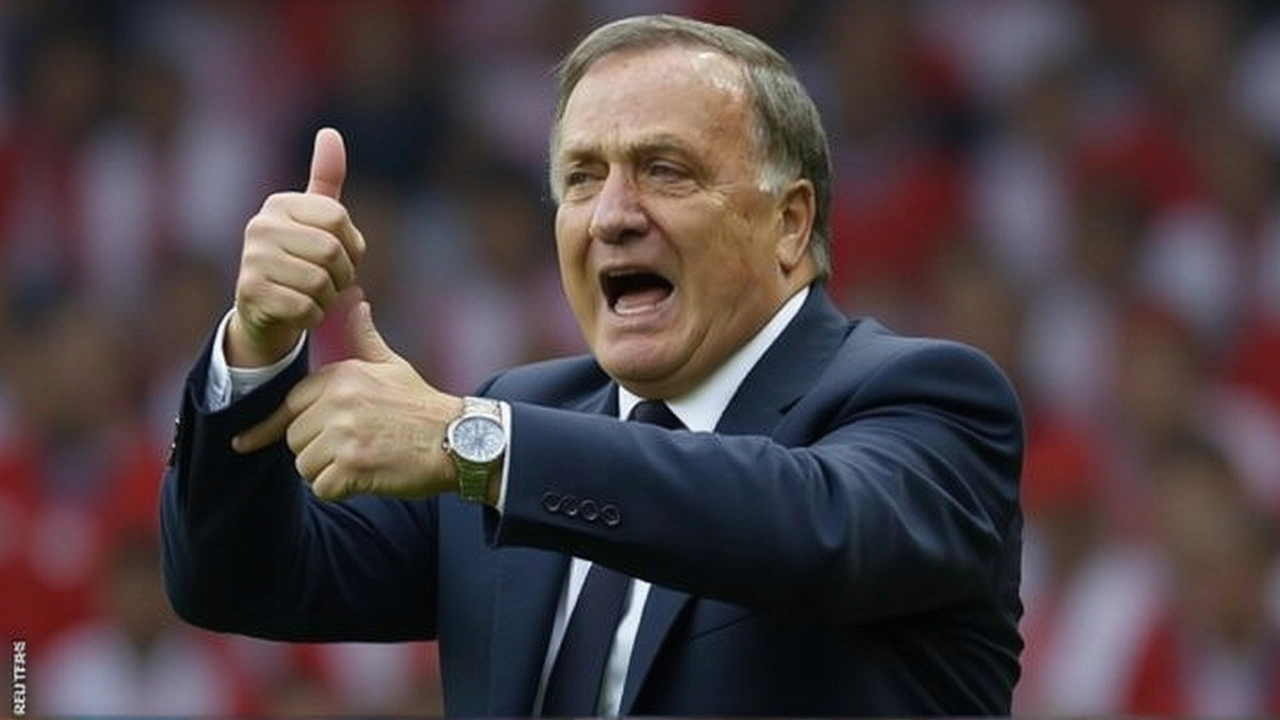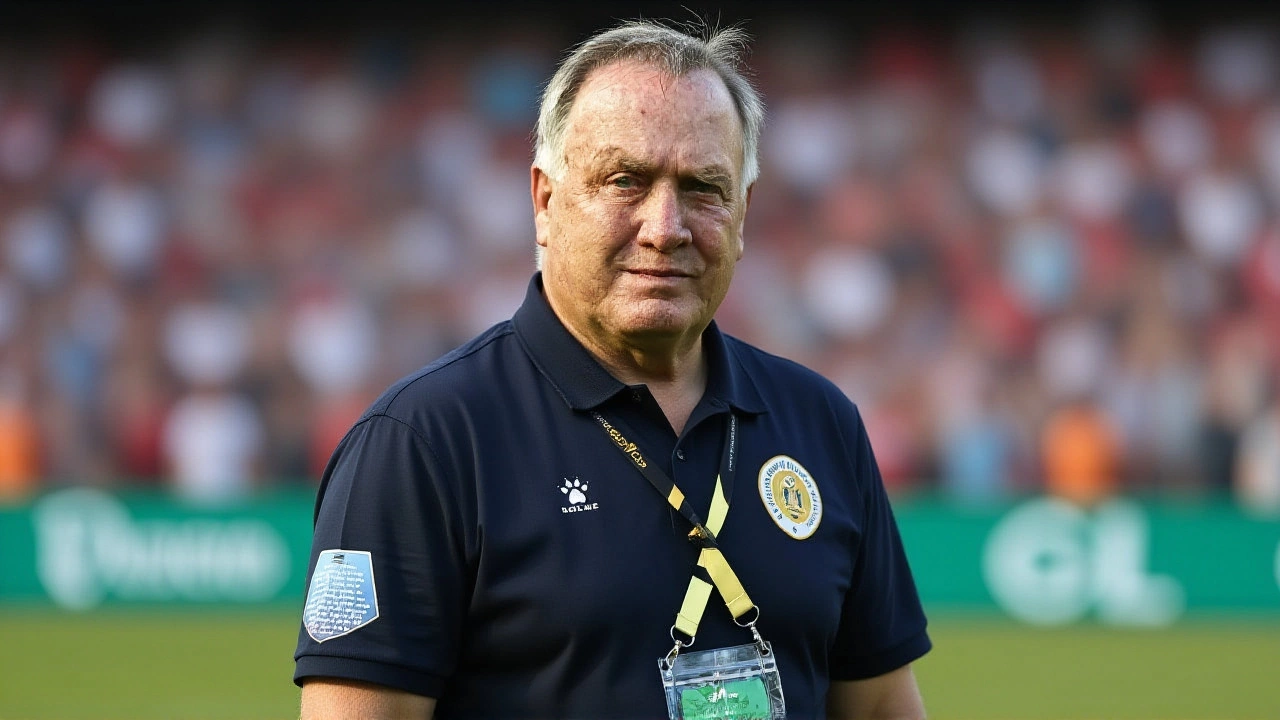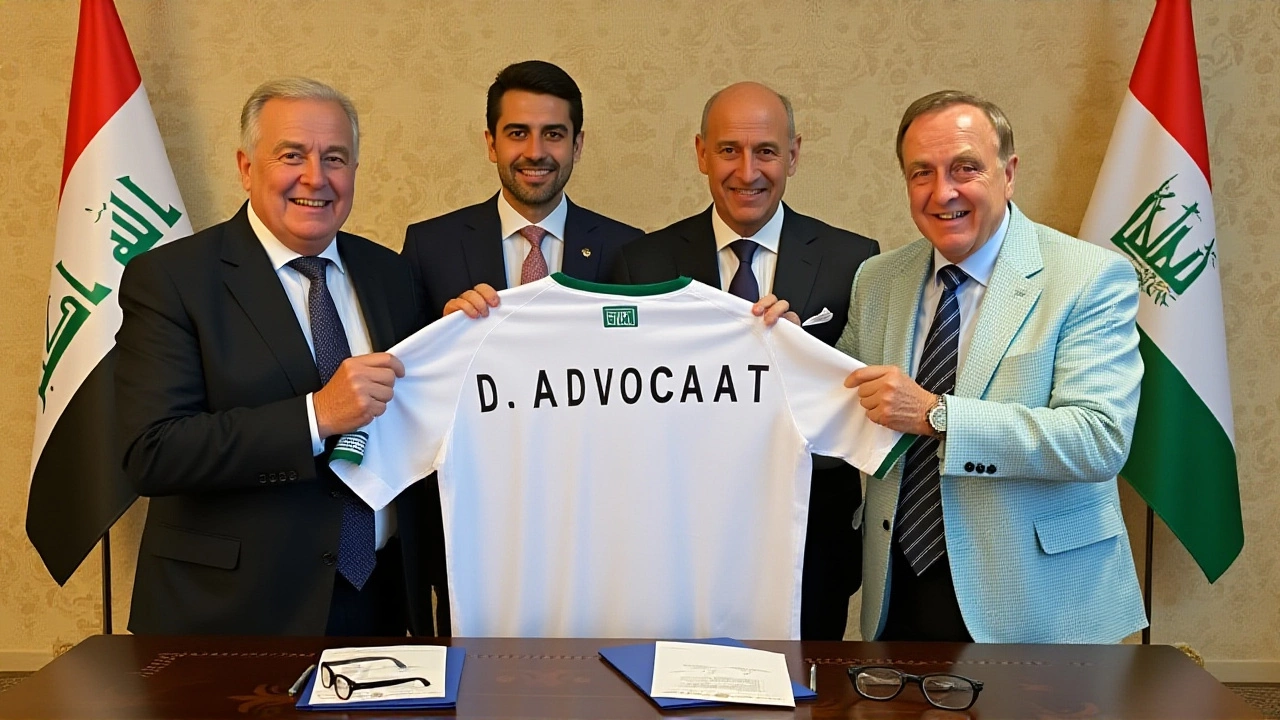At 78 years old, Dick Advocaat didn’t just coach a team to the World Cup—he rewrote history. On Tuesday, November 14, 2023, the tiny Caribbean island of Curaçao secured its first-ever qualification for the 2026 FIFA World CupUnited States, Canada, and Mexico with a nerve-shredding 0-0 draw against Jamaica at Independence Park in Kingston. Advocaat, watching from his home in The Hague at 2 a.m. Dutch time, became the oldest head coach ever to guide a nation to the World Cup finals—surpassing Germany’s Otto Rehhagel, who was 71 when he led Greece in 2010. The record isn’t just a footnote. It’s a seismic shift in what’s possible in football.
Family First, But the World Watched
Advocaat didn’t sit in the stands. He couldn’t. Family obligations pulled him away from Kingston, a decision he called "heavy-hearted" but necessary. "I made this choice with a heavy heart, but family comes before football," he said in a statement released by the Curaçao Football Federation. Instead, he stayed glued to his screen, phone in hand, talking to team manager Wouter Jansen, who relayed tactical adjustments to assistants Dean Gorré and Cor Pot during halftime. It was a high-stakes game of telephone across continents—and it worked.The match itself was a thriller. Jamaica, favored and home-backed, hit the woodwork three times in the second half. Their goalkeeper, Andre Blake, made two miraculous saves. Curaçao’s defense held firm, but the tension peaked in the 94th minute. Substitute Jeremy Antonisse appeared to haul down Isaac Hayden in the box. Referee Ivan Barton pointed to the spot. The crowd roared. Then—VAR intervened. After a two-minute review, the call was overturned. No foul. The whistle blew. Curaçao had done it.
A Nation of 160,000 Against the Odds
Curaçao isn’t just small—it’s the smallest nation ever to qualify for a World Cup. With a population of roughly 160,000, it’s smaller than many European cities. Its football infrastructure is modest. Its players mostly compete in lower-tier European leagues or local clubs. Yet here they are, set to join the world’s biggest sporting stage in 2026. The Curaçao Football Federation appointed Advocaat on January 15, 2023, with a simple mandate: make it happen. He did.Under his leadership, Curaçao finished top of their CONCACAF qualifying group with six wins, two draws, and two losses in 10 matches. They didn’t dominate. They endured. They adapted. And when it mattered most, they held their nerve. The team’s resilience mirrors Advocaat’s coaching philosophy: disciplined, organized, and emotionally grounded. "They didn’t need me there to believe," he said afterward. "They already did. That’s what made this special."

A Coach Who’s Seen It All
Advocaat’s career reads like a football atlas. He managed the Netherlands national team three separate times—1992–1994, 2002–2004, and 2017–2018. He led Russia to Euro 2012. He coached South Korea through the 2006 World Cup, including a 2-0 win over Iran in his debut match. He’s managed clubs from Rangers FC to Sunderland AFC, and even briefly took charge of the United Arab Emirates and Belgium national sides.His stint with Iraq in 2021—aimed at qualifying for the 2022 World Cup—wasn’t a success, but it showed his willingness to take on the toughest jobs. Now, at nearly 79, he’s done the impossible: turned a nation of islanders into World Cup participants. His record with Curaçao? 10 matches, 6 wins, 2 draws, 2 losses. Simple. Efficient. Historic.

What’s Next for Curaçao and Advocaat?
The 2026 FIFA World CupUnited States, Canada, and Mexico kicks off on June 11, 2026. Advocaat will be 78 years and 8 months old by then. No one has ever coached at that age. Will he stay? The Curaçao Football Federation hasn’t said. But insiders suggest he’s open to continuing—if the team wants him. "I’m not retired," he told Dutch media last month. "I’m just waiting for the right challenge."For Curaçao, the next step is bigger than qualification. It’s about legitimacy. They’ll need funding, better training facilities, and international exposure. Their players—mostly semi-pros—will face giants like Brazil, Germany, or the United States. But they won’t be underdogs in spirit. They’ll be pioneers.
And for Advocaat? He’s not chasing records. He’s chasing meaning. "I’ve won leagues, cups, tournaments," he once said. "But this? This is about proving that passion doesn’t age."
Frequently Asked Questions
How did Curaçao manage to qualify despite having such a small population?
Curaçao’s qualification was built on disciplined defending, tactical flexibility, and a deep connection to the Dutch football system. Many players have Dutch heritage or play in Dutch lower leagues, giving them access to high-level coaching and competition. Advocaat’s experience helped them maximize limited resources, turning defensive resilience into a winning strategy. They finished top of their group with only 10 matches played, showing remarkable consistency under pressure.
What makes Advocaat’s achievement different from other veteran coaches?
While coaches like Otto Rehhagel or Carlos Queiroz have managed at advanced ages, Advocaat is the first to lead a team to the World Cup finals past 78. Rehhagel was 71 in 2010. Advocaat’s achievement is also unique because he did it with a team from a micro-nation, not a traditional football powerhouse. His ability to inspire underdogs, manage remotely, and adapt tactics on the fly sets him apart from any other coach in history.
Will Advocaat coach at the 2026 World Cup finals?
The Curaçao Football Federation has not confirmed his future role, but sources close to the team say he’s likely to stay. Advocaat himself has hinted he’s not ready to step away. If he does, he’ll be the oldest manager ever on a World Cup touchline—breaking his own record. Even if he steps back, his legacy as the architect of Curaçao’s historic run is secure.
How did VAR play a crucial role in Curaçao’s qualification?
In the 94th minute, referee Ivan Barton initially awarded Jamaica a penalty after a challenge by Jeremy Antonisse. The crowd erupted, and Curaçao’s hopes seemed to be crumbling. But after a VAR review, the decision was overturned because the contact wasn’t deemed sufficient for a foul. That single call preserved the 0-0 draw and sent Curaçao to the World Cup. Without VAR, history might have been very different.
What impact will this have on Caribbean football?
Curaçao’s success could spark a renaissance in Caribbean football. Smaller nations like Suriname, Saint Kitts and Nevis, and the British Virgin Islands now see a realistic path to global recognition. It proves that with smart management, disciplined play, and strong leadership—even a population of 160,000 can compete on the world stage. FIFA may also reconsider funding and development programs for micro-nations after witnessing this milestone.
Is Dick Advocaat the oldest coach ever in international football history?
Yes, as of now, Advocaat holds the record for the oldest coach to qualify a team for a World Cup. While others like Sir Alex Ferguson or Arsène Wenger coached past 70, none have reached the World Cup finals at 78. His record stands not just in age, but in context: leading a non-traditional football nation against overwhelming odds. It’s a testament to longevity, adaptability, and the enduring power of experience.
